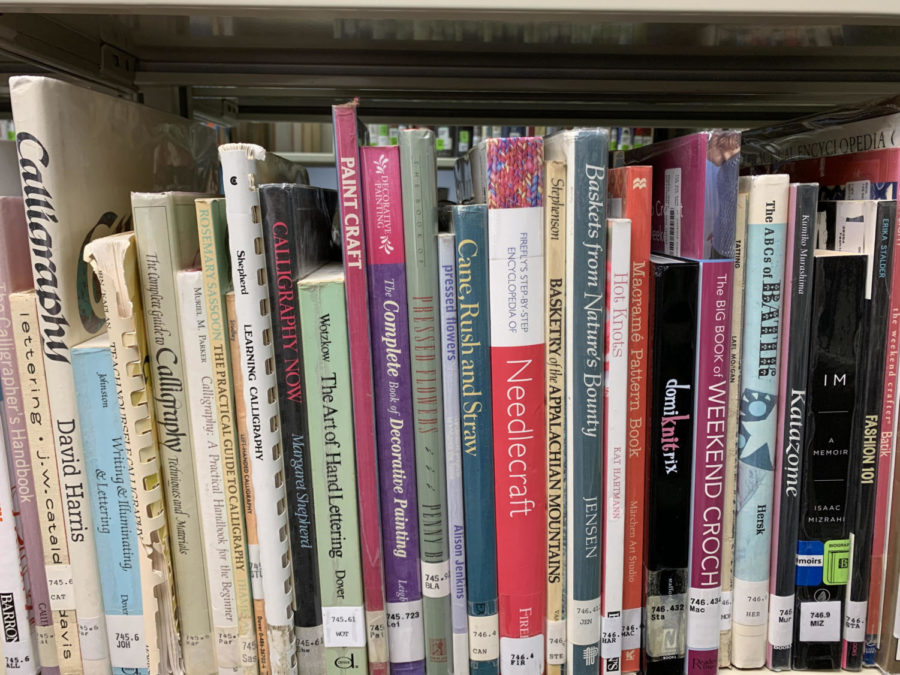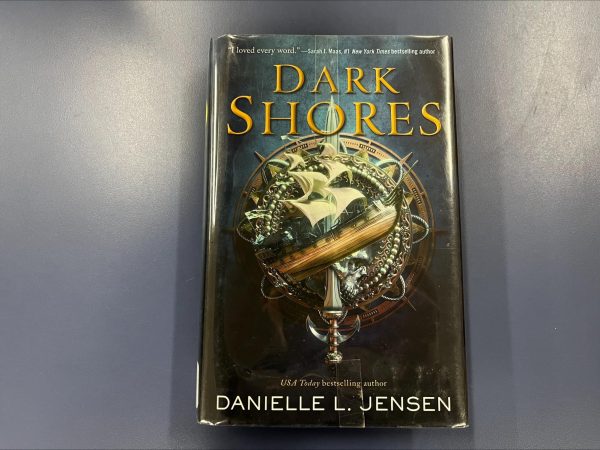To Read or Not to Read
In my experience, it’s not uncommon to hear remarks from GHS students jokingly commenting on how they hate reading or haven’t completed a book outside of class in years. While this may seem like a lighthearted comment that causes teachers and parents alike to roll their eyes, it’s actually an alarming reflection of the recent decrease in the number of young people who read for pleasure. We’re raising a generation of people who go years, if not a lifetime, without engaging with literature outside of the classroom, and I believe we need to reassess our education system’s approach to reading.
At the elementary level, there’s a much bigger emphasis on students selecting their own books and visiting the library to explore their interests, but in high school that push for students to make choices about the literature they interact with somewhat drops off. The classic books that are part of the standard curriculum are incredibly important for students to have exposure to, however, when complex novels are the only reading materials being given to young people, it’s easy for students to view all literature as inaccessible. Treating reading as solely a difficult chore for students is naturally going to lead to them gravitating towards electronic forms of entertainment because they aren’t actively given opportunities to read the kinds of books they like. I spoke with a few high achieving GHS seniors who enjoy reading in their free time, and one of them detailed how their “perception of reading has been tainted” by the expectation to consume and enjoy long, intellectual books. They mentioned that they liked reading books that were for slightly younger audiences or didn’t have the same literary merit as the materials in English courses, and that they often experienced guilt because they were not reading the books they believed they were supposed to. I believe that including a mix of standard academic texts and other books students choose for themselves would be beneficial for high schoolers.
To increase interest in reading for pleasure, I think schools should be providing opportunities for students to read a variety of genres, even ones that are commonly looked down on, like comedy and romance. According to research done by Scholastic in 2016, it was reported that “70% of teens would read more if they could find more books they liked,” and I think a lot of this has to do with the fact that only a few genres are widely represented in high school curriculums. Other types of literature, like comic books and graphic novels should have a bigger place in our schools, because it’s reasonable that some readers will gravitate towards dense novels while others will not. Having options is going to include more students in reading, especially those who loved books in younger grades but lost interest in high school.
The school system should be pushing for more independent reading because it has incredible benefits that all students should reap, including improved mental health, more positive relationships, higher test scores, and increased motivation. Students who enjoy reading tend to do it more thoroughly and are less likely to skim pages to pick out answers, leading to higher understanding in all subjects. Schools seek to raise reading comprehension, and incorporating independent reading into their curriculum will help achieve that; including a variety of different genres into lesson plans will make students more willing to read and understand text at a deeper level. But not only does reading help students academically, it has also consistently shown to improve mental health. According to the 2018 National Literacy Trust report, it was reported that young people who are the most engaged with literacy are three times more likely to have higher levels of mental wellbeing than those who are not as engaged; we should continue to take this into account for high school students who experience high amounts of stress and anxiety, as reading has also shown to generally make people more content with their lives at all ages. We should also look at the way in which we assess student’s reading comprehension, which is typically through content quizzes and memoization-based tests. These types of assessments are necessary to make sure students are keeping up with their work and are at the appropriate reading level for their age, however, when every time a student reads a book they are focused on an upcoming test, reading becomes associated with a stress-inducing task. One GHS student says they love to read, and they “feel a lot less pressure when we aren’t being tested” and can just read for their own pleasure. Other assignments like independent projects and reflections, or casual classroom discussions should be more widespread to help students unlearn the anxiety they have around reading.
There are already many existing resources at GHS and online that can help students rekindle their love of reading and find books they like. In our school library there are displays of popular YA and adult books from different genres, as well as spotlights on certain authors. Most students, however, aren’t aware of these unless they seek out the library’s resources on their own. Part of the English curriculum should be exposure to the library outside of the mandatory research projects. Trips to the library for independent reading are necessary for allowing students to develop their interests and explore their options. Another great resource is the many online communities and websites dedicated to reading and exploring literature, including apps like Goodreads and Storygraph. The Goffstown and New Boston libraries also have many opportunities for reading and related activities, which schools should make students aware of.
In conclusion, I believe that a higher focus on independent reading for pleasure would improve the high school experience in a number of ways, both in terms of academic work and improved mental health for students. To truly set students up for a successful future, we must value their interests.
sources:
https://www.healthline.com/health/benefits-of-reading-books#takeaway








